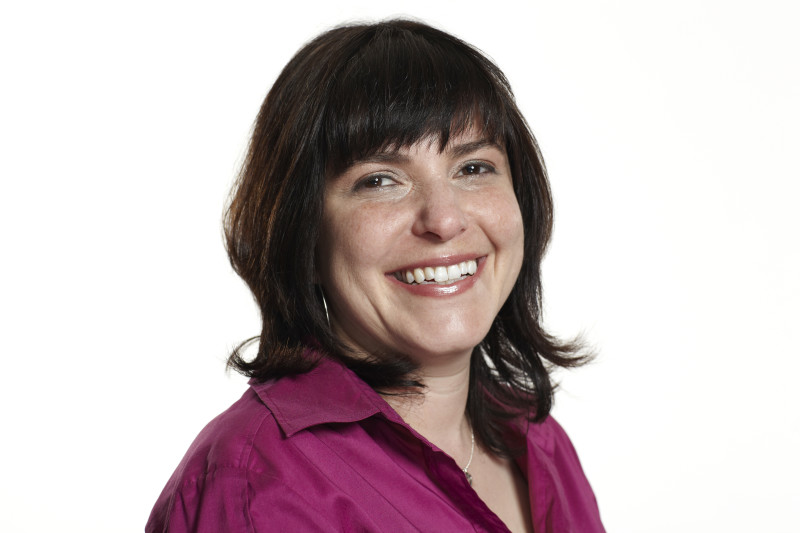After seven years as a host and reporter for the weekday morning broadcast of The California Report on KQED Public Radio, Rachael Myrow is taking a new position in October 2014 as reporter for KQED's Silicon Valley News Desk in San Jose, covering a wide range of topics in the South Bay region, including government, the economy, diverse communities, technology and culture. Before Rachael left San Francisco, she answered a few questions about her time so far at KQED.
How you would describe a typical workday?
It starts with coffee. I make a three-cup thermos full of motor oil-strength coffee, with two sugar cubes and half and half. Then I take a hot shower. I wake up at 3:15am so I can be in the car at 4 o'clock to listen to NPR's newscast, which is 7am their time — prime time. I'm curious to see where California is popping up in the newscast. What's interesting to a national audience often leaves out a lot of what's interesting to a regional audience. By 4:15, I'm booting up the computer and scanning the newspapers, about 10 papers from around the state. I also subscribe to a lot of email news alerts.
I tell people who ask how I get all this work done that I'm really just a hostess at a potluck. Most of the dishes are being prepared by other people. I'm putting them on the table and adding a few finishing flourishes, and sometimes preparing a dish myself, but it's a team effort. By the time I walk in the door, most of the newscast is already produced unless there's been some breaking news. To use another cooking analogy, there's some slow-cook stuff that takes weeks to prepare, and there are the news spots — a poll that just came out, for example. It's a mix on any given day.
I assume the biggest challenge is getting up at 3:15am. What's something that you really enjoy about your job?
I love the audience. The reason I'm in public radio is the people I'm talking to. They are earnest and care about the direction of the state and their community, and they're intelligent enough to follow along. They don't need to be spoon-fed the basics. We don't have to play the Kabuki theater that you often see in Washington, DC. I think a lot of Californians are very honest and forthright about their political opinions. That's not to say we all agree with each other, but there's a sense that we're having a frank, honest conversation about it.
Do you get a lot of feedback on your work?
Not too much. One of the nice things about social media is that we are trying to elicit more conversation. We had a story about water meters being installed very slowly in Sacramento, and I put a call out on Facebook asking, "What are your local officials doing?" There were some very colorful responses, which we put on the air the next day. The quality of the responses you get from people is impressive. It's a satisfying thing.
